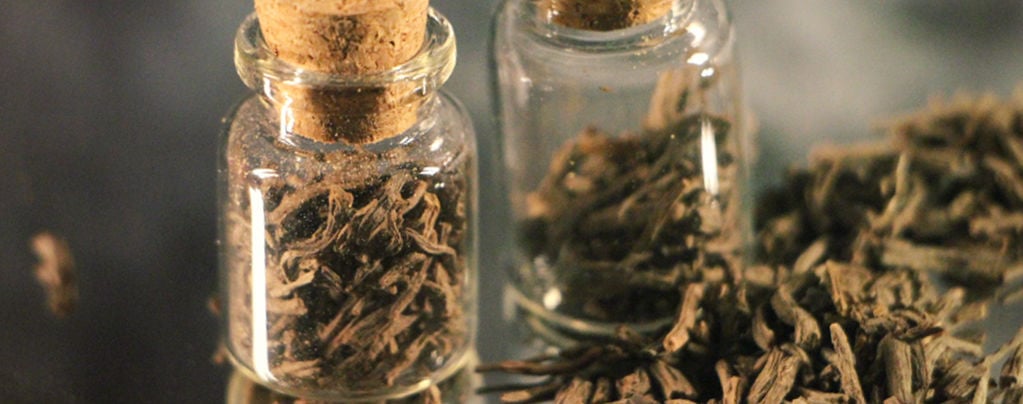
What Is Valerian Root?
Valerian root has a long history of holistic use, especially in relation to sleep and tension. But does valerian actually work? Here we look into a little of the history of valerian, and investigate how it might interact with the body.
History is strewn with unique holistic practices, many of which now seem outdated or even dangerous. One that has clung on, however, is the use of valerian root, especially in relation to sleep and tension.
The roots of this herb have continually been used in Western holistic practice for thousands of years, and continue to be used today. Find out all about valerian, its potential mechanisms of action, and how to use it.
What is valerian?
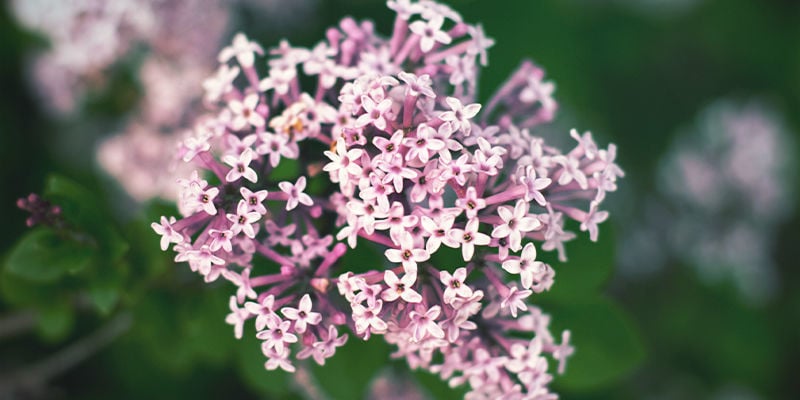
Valerian is a perennial herb native to Europe and Asia. It produces white-pink flowers, which attract many species of fly, especially hoverflies of the genus Eristalis. Considered by some as a weed, and classed as an invasive species in parts of the US, this plant grows easily and spreads fairly quickly.
However, far from being predominantly a frustration to gardeners, valerian has been a staple in herbal holistic practice for generations.
History of valerian root
Perhaps the first recorded use of valerian for holistic purposes comes from Hippocrates of ancient Greece.
Since then, valerian has been used in various European herbal practices, right up to the modern day. In medieval Sweden, valerian even served supposed magical purposes. It would sometimes be sewn into a groom's clothing on their wedding day to ward off the envy of elves.
Besides that, there’s plenty of evidence that valerian has been commonly used more or less continuously. Unlike many other traditional herbal supplements, it seems that valerian never fell out of favour, and its use seems to have been based on some rather erudite observations.
What are the potential benefits of valerian root?
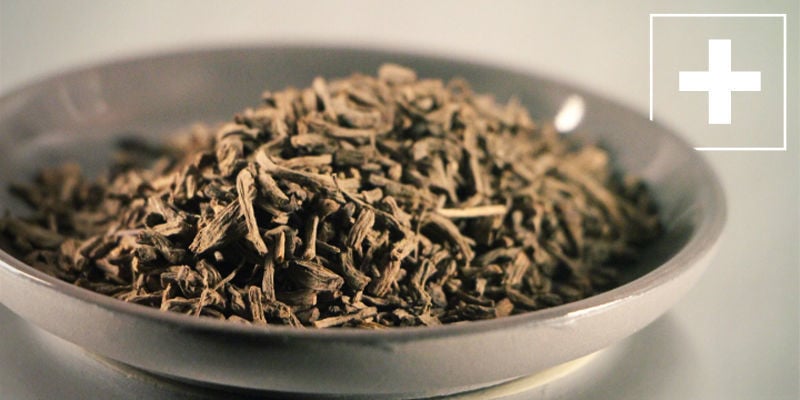
Since valerian root was first recorded as potentially having holistic viability, it has often been cited as being helpful in relation to sleep. Alongside sleep, there are some other conditions that people might use valerian in relation to:
- Tension
- Feeling restless (including restless leg syndrome)
Evidence is still scarce on valerian’s potential uses, although the European Medicines Agency has approved valerian as a traditional herb for mild nervous tension and sleep. This is based on the fact that, though proof is still not available, the chemical structure of valerian would suggest that it might be able to affect these conditions.
What is GABA?
Valerian comprises many alkaloids and other chemical compounds. In terms of identifying why it may be of some use, gamma-aminobutyric acid (GABA) is the subject of most research. GABA binds with the brain’s GABA receptors (aptly named!).
When the GABA receptor is activated, neuronal activity is reduced and the central nervous system becomes depressed. Benzodiazepines (a class of drug) act on GABA receptors and are thus used to suppress the nervous system, and are widely prescribed for anxiety and sleep conditions. Diazepam (Valium) is one of the most well-known benzodiazepines.
In relation to valerian, GABA is found in valerenic acid. This compound, alongside stimulating GABA receptors, also stimulates the serotonin 5-HT5A receptors. Apart from GABA’s neuronal suppressant properties, serotonin is also strongly linked to the sleep-wake cycle, and affecting it is thus known to affect sleep. However, it is unclear whether valerian is able to impact this system.
How valerian root is used
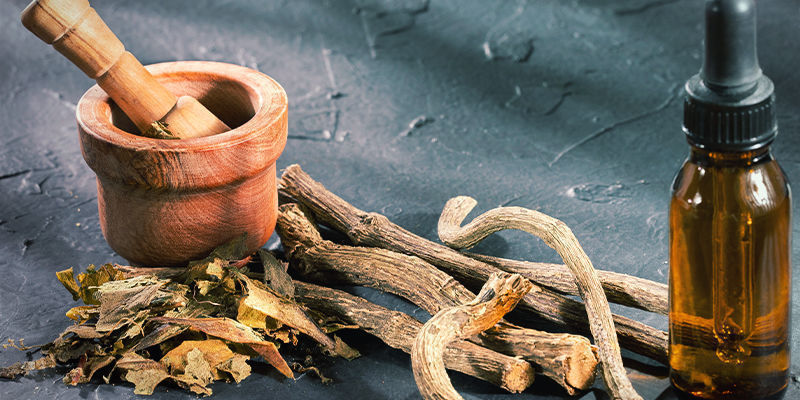
Valerian root generally comes as a powdered extract. Often, this is contained within capsules or tablets. Otherwise, the root powder can be bought, which is traditionally brewed into a tea or tincture.
In most cases, where valerian is taken as a capsule or powder, it is taken in doses of between 300 and 600mg daily. One thing to be aware of is that valerian extract is often sold with other supplements. For instance, 5-HTP and valerian capsules are common, marketed as a sleep aid.
Though these combinations are probably safe to ingest, it’s important to always be aware of what you are taking. So before purchasing a valerian product, ensure you know whether it contains any other compounds that may affect you, or interact with other drugs.
Another thing to be aware of is that some studies have noted that, if valerian root extract does have any effect, this can take up to six weeks to become noticeable. It seems that if there is something working in valerian, it likely has a cumulative effect. So if you intend to try it, it’s worth sticking with valerian for a while.
Does valerian cause any side effects?

Valerian has more severe side effects than many other comparable supplements. These are:
-
Extremely vivid dreams: Valerian can cause very vivid and real dreams, which can become quite overwhelming. If you’re prone to nightmares, then it may not be good for you, especially if you’re trying to improve sleep quality.
-
Mental fogginess and fatigue: Some users report, especially with continued usage, extreme fatigue and mental fogginess from taking valerian root extract. So even if it did help you sleep, this could mitigate the benefits!
-
Heart palpitations: These disconcerting, fluttering sensations in your chest usually pose no risk, but can be very uncomfortable and anxiogenic, especially if you don’t know what they are.
-
Dry mouth: This one’s pretty self-explanatory, but can be uncomfortable if long-lasting.
-
Upset stomach: Valerian use has been linked to increased rates of diarrhoea.
Should you use valerian root?
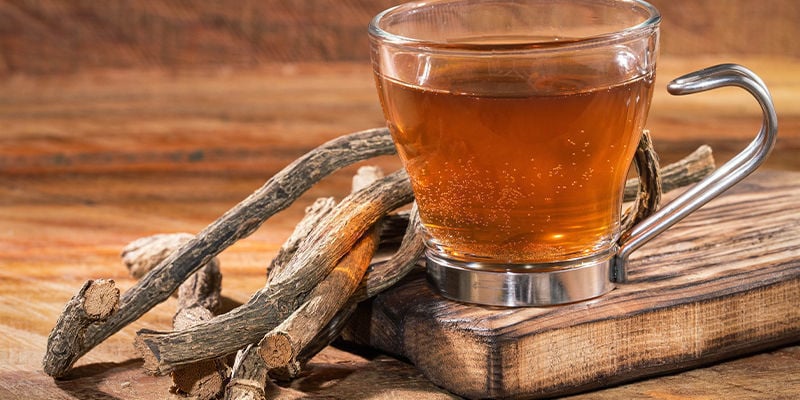
It’s hard to say whether valerian is worth trying or not.
On the one hand, it has a long history of use, which seems to have at least some support from the modern scientific community. Unlike many other supplements, valerian extract can be found in certain medicinal sleeping products, such as sleeping pills.
On the other hand, this herb is also linked to some fairly discomforting side effects. This, in addition to the fact that you may need to take it for six weeks to discern if it has any positive effects, means you need to be pretty committed if you’re really going to give it a go.
Still, if you think it could be helpful, it’s worth a try. Just be sure to stop taking valerian if you experience unpleasant side effects, and consult with your doctor if you have any further questions or concerns.
-
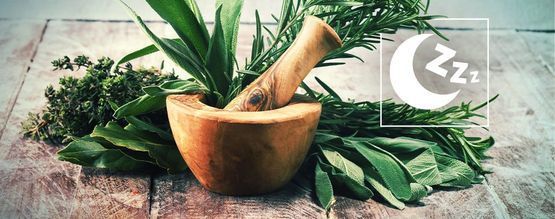 4 min
11 October 2020
Best Natural Herbs to Promote Sleep
We all know how important sleep is. From our mindset to our mood, sleep is undeniably essential to human functioning. But sometimes we don’t get the rest we so well deserve. There are many factors...
4 min
11 October 2020
Best Natural Herbs to Promote Sleep
We all know how important sleep is. From our mindset to our mood, sleep is undeniably essential to human functioning. But sometimes we don’t get the rest we so well deserve. There are many factors...
-
 5 min
30 April 2020
10 Best Herbs To Brew A Tea With
At least since the ancient Egyptians, herbs have been brewed into tea. Teas can be used as stimulants and sedatives or even as aphrodisiacs. Use vaping herbs to make teas that can be beneficial in...
5 min
30 April 2020
10 Best Herbs To Brew A Tea With
At least since the ancient Egyptians, herbs have been brewed into tea. Teas can be used as stimulants and sedatives or even as aphrodisiacs. Use vaping herbs to make teas that can be beneficial in...
-
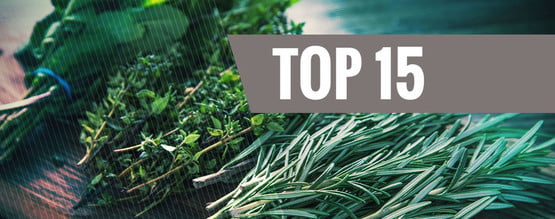 5 min
23 March 2020
Best Legal Herbs to Vaporize
All of the following herbs are legal and can be vaped to your heart’s content! Many of them have long been used by herbal practitioners. Enjoy them alone or mix them in with your cannabis!
5 min
23 March 2020
Best Legal Herbs to Vaporize
All of the following herbs are legal and can be vaped to your heart’s content! Many of them have long been used by herbal practitioners. Enjoy them alone or mix them in with your cannabis!













 United States
United States










